Analysis + Opinion | 2020
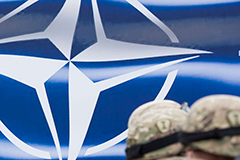 |
Analysis + OpinionDecember 3, 2020Europe can defend itselfBarry PosenIISS Survival Editors' BlogBarry Posen argues that Europe is better placed to defend itself militarily than many, including the IISS, have portrayed it to be. |
 |
Analysis + OpinionNovember 12, 2020The future of the Iran nuclear dealWBUR, Here and NowPresident Trump pulled the US out of the deal signed in 2015 with Germany, France, Britain, China and Russia. But president-elect Joe Biden is promising to reverse Trump's decision.
|
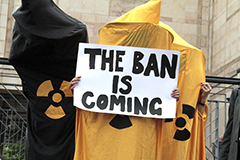 |
Analysis + OpinionNovember 5, 2020What the nuclear ban treaty means for America's alliesHeather WilliamsWar on the RocksWhether or not the treaty delivers on its disarmament promises or has a major impact on US or NATO nuclear postures ultimately depends on what its members and supporters do next and if it can prove that it is more than just a symbolic protest against the nuclear status quo. |
 |
Analysis + OpinionOctober 22, 2020Why we can’t be friends with our alliesPatrick Porter, Joshua ShifrinsonPoliticoBy falsely equating alliances with friendships, Biden and his team run serious risks. The rhetoric of friendship obscures the reality of US foreign policy to the American people. |
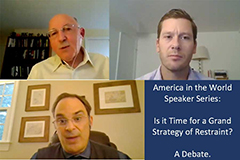 |
Analysis + OpinionOctober 21, 2020Is it time for a grand strategy of restraint? A debateJohns Hopkins | Kissinger Center for Global AffairBarry Posen and Michael Mazarr layout their cases in opposing sides to this debate on whether the United States should embrace a grand stragy of restraint or not. |
 |
Analysis + OpinionOctober 20, 2020Understanding US-China strategic competitionDetermining the right prescription for how the United States should respond to strategic competition with China depends on having the right diagnosis of the problem, writes former Robert E Wilhelm Fellow Paul Heer. |
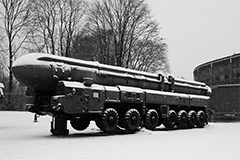 |
Analysis + OpinionOctober 13, 2020Vipin Narang on the global nuclear landscape: hype and realityThe DiplomatWith many nuclear powers pushing their envelope and, in some cases, luck, and the future of arms control under stress, the current nuclear environment is defined by several challenges around proliferation and escalation risks. |
 |
Analysis + OpinionSeptember 15, 2020Important Iraqi archives are now back in Baghdad. Where were they, and what happens now?What makes these documents so important — and a source of controversy? They detail the crimes of an authoritarian state, from the collaborations of citizens to the predations of state officials. |
 |
Analysis + OpinionSeptember 13, 2020Seven bad options to counter state sponsorship of proxiesSara PlanaLawfareIran, Russia and other countries often use proxies as a way to fight the United States and its allies while advancing their own influence. Fighting proxy war, however, is often more complicated than confronting traditional aggression. Sara Plana details a range of responses to proxy war and notes their many limitations. (Daniel Byman). |
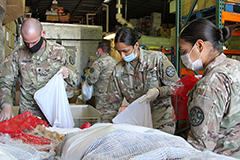 |
Analysis + OpinionAugust 17, 2020Pandemic politics: Covid-19 and the US militaryIn addressing relationship between the US military and the COVID-19 crisis, it is important to note that there are two key questions: how can the US military affect the current national crisis and how is the crisis affecting the military? The military has been involved in messaging, logistics and direct support of communities affected by the pandemic. At the same time, the realities of living with an infectious disease are challenging basic assumptions about military budgets, force readiness and training. |
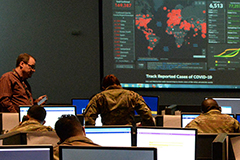 |
Analysis + OpinionAugust 10, 2020Pandemic politics: Covid-19 and grand strategyAs the world attempts to cope with and contain the COVID-19 pandemic, policy-makers and citizens alike are questioning the role of the state, its goals and the tools it uses. Lockdowns, overtaxed health care systems, mass unemployment, increasing mental health crises and supply chain disruptions plague the global system. Citizens wonder whether we will see a change in how states conduct themselves after the pandemic, both internationally and domestically. |
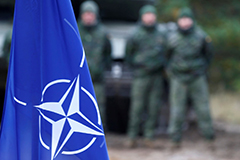 |
Analysis + OpinionAugust 9, 2020Beware of Latvians bearing giftsHarvey SapolskyThe National InterestThere is no need for the United States to guard Europe against the Russians. The Europeans are rich, numerous, and fully capable of defending themselves. America must resist Latvians or Poles bearing gifts, argues Harvey Sapolsky. |
 |
Analysis + OpinionAugust 5, 2020Pandemic politics: How the Future Strategy Forum amplifies the expertise of womenSara Plana and Rachel TecottInternational Affairs BlogIn a new International Affairs blog published here, Sara Plana and Rachel Tecott reflect on the work of the Future Strategy Forum (FSF). The FSF amplifies the voices of national security experts from under-represented backgrounds. |
 |
Analysis + OpinionAugust 3, 2020Why President Truman insisted on unconditional surrenderRichard SamuelsThe New York TimesEvery August, newspapers are dotted with stories of Hiroshima and Nagasaki, accompanied by a well-picked-over — but never resolved — debate over whether atomic bombs were needed to end the Asia-Pacific war on American terms. What is left to learn 75 years (and with so much spilled ink) later? |
 |
Analysis + OpinionJuly 30, 2020Training the Covid-19 cohort: Adapting and preserving social science researchFotini Christia, Chappell LawsonSSRCFotini Christia and Chappell Lawson address changes in research and impacts of the pandemic on fieldwork. They trace the shifts in research focus that it has produced and find opportunities in newly broadened methodologies, but warn of the dangers of neglecting non-Covid research and the traditional fieldwork that still remain essential to social science. |
 |
Analysis + OpinionJuly 17, 2020Unearthing the stories of yesterday's George FloydsMelissa NoblesThe Boston GlobeWhen we call the victims' descendants to share our findings, they tell us 'I never thought I'd get this call.' The scars remain, and luckily, because we have found documents, so does proof. This opinion piece is written by Melissa Nobles and appeared first in the Boston Globe. |
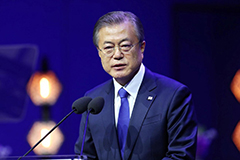 |
Analysis + OpinionJuly 15, 2020America and China have hampered peace progress on the Korean peninsulaKacie MuiraThe National InterestThe discordant approaches taken by South Korea, the United States, and China have hampered progress toward peace on the peninsula. Seoul’s pro-peace diplomacy has been undercut by Washington’s “maximum pressure” campaign, which in turn has been undercut by Beijing’s loosening of sanctions enforcement. |
 |
Analysis + OpinionJuly 2, 2020India's Pangong pickle: New Delhi's options after its clash with ChinaChristopher Clary and Vipin NarangWar on the RocksIndia was surprised by the scale of China’s incursions and was initially caught unprepared. It now faces the difficult challenge of trying to restore the status quo. |
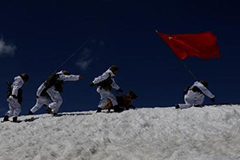 |
Analysis + OpinionJune 26, 2020China’s sovereignty obsessionM Taylor FravelForeign AffairsBeijing and New Delhi are now attempting to de-escalate tensions, but they have sent reinforcements to the border and eye each other warily. The series of events that led to the clash seems to have begun with China’s move into a portion of the Galwan Valley, raising questions about Chinese motives. Provoking India could push New Delhi to pursue closer ties with Washington at a time when US-Chinese relations are on a downward spiral. |
 |
Analysis + OpinionJune 23, 2020Covid-19 news and activitiesHere you can find a running list of Covid-19 news stories, features, and events that involve members of the CIS community. |
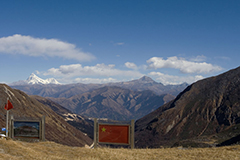 |
Analysis + OpinionJune 9, 2020Tension high, altitude higher: Logistical and physiological constraints on the Indo-Chinese borderAidan MilliffWar on the RocksAre India and China on the path to war in the Himalayas? Or will recent tensions over their disputed border fade into history like dozens of other standoffs that were resolved diplomatically? Aidan Milliff explores the issues in a recent War on the Rocks essay. |
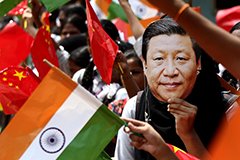 |
Analysis + OpinionJune 2, 2020Why are China and India skirmishing at their border? Here’s 4 things to know.M Taylor FravelThe Washington PostHere’s what we know— and don’t know—about China’s recent actions in this long-standing territorial dispute. |
 |
Analysis + OpinionJune 2, 2020Integrating emerging technology in multinational military operations: The case of artificial intelligenceErik Lin-GreenbergTexas National Security ReviewLast fall, Perry World House hosted a two-day colloquium titled "How Emerging Technologies Are Rewiring the Global Order." The essays in this roundtable emerged from a panel on how emerging technologies like AI are changing international politics. Featured here is one of the essays by Erik Lin-Greenberg, who joins MIT this fall as an assistant professor of political science at MIT. |
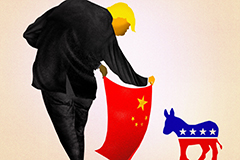 |
Analysis + OpinionMay 10, 2020Can the democrats avoid Trump’s China trap?Rachel Esplin Odell, Stephen WertheimThe New York TimesDemocrats, and Republicans who truly put American security first, face a choice. Joe Biden in particular will decide whether to lead his party into Mr Trump’s trap or play a different game. |
 |
Analysis + OpinionMay 9, 2020An ode to the humble balconyBernardo ZackaThe New York TimesIt is private, yet public; exposed, yet secluded. It offers company without the demands of intimacy, and we should never take it for granted again, writes Bernardo Zacka in a New York Times opinion piece available here. |
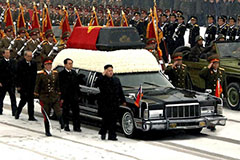 |
Analysis + OpinionMay 8, 20204 things that will happen if Kim Jong-un diedJim WalshThe National InterestShould Chairman Kim exit early, there may be an opportunity to return to the negotiating table, especially given the North's precarious situation--one that is likely to deteriorate even further over the near to medium term, writes Jim Walsh in The National Interest's series asking what happens if Kim Jong-un died. |
 |
Analysis + OpinionMay 7, 2020Does the global pandemic open new South China Sea opportunities for Beijing? Not really.M Taylor FravelThe Washington PostA number of recent analyses have emphasized that China is seizing pandemic-created opportunities to improve its position in the South China Sea as other countries are distracted or otherwise unable to respond. A key implication of such claims is that absent the pandemic, China would have acted differently and perhaps with more restraint. |
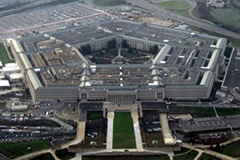 |
Analysis + OpinionApril 28, 2020Don’t classify the FYDP; Budget transparency helps allies, taxpayersMiranda PriebeBreaking DefenseUnclassified information about DoD’s current plans will help the country weigh options such as sustaining the current defense budget, shifting priorities within it or significantly shrinking it by rethinking the US approach to the world. |
 |
Analysis + OpinionApril 25, 2020Europe has kept down pandemic unemployment--and the US hasn’t. Here’s why.Anke Hassel, Kathleen ThelenThe Washington PostOver the last several decades, the United States has either shrunk its state capacity or failed to build it, especially around providing social benefits. In Europe, by contrast, governments have enough administrative capacity to deliver comprehensive help swiftly and directly. |
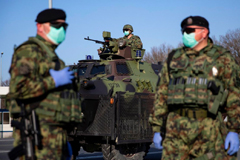 |
Analysis + OpinionApril 23, 2020Do pandemics promote peace?Barry PosenForeign AffairsCovid-19 does nothing to mitigate such risks for world leaders—and a great deal to feed their reasonable pessimism about the likely outcome of even a conventional war, says Barry Posen in an essay in Foreign Affairs. |
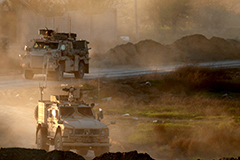 |
Analysis + OpinionApril 21, 2020The Middle East in an era of great power competitionBarry Posen and Stephen WaltMiddle East InstituteHow does or should the Middle East fit in America’s new grand strategy? Does the great power competition require a new approach toward the Middle East? Which approach best serves Washington’s new global plans? To answer these questions and more, the Middle East Institute (MEI) hosted a conversation with Barry Posen (MIT) and Stephen Walt (Harvard). Find the video and transcript here.
|
|
|
Analysis + OpinionApril 15, 2020How digital contact tracing slowed Covid-19 in East AsiaYasheng Huang, Meicen Sun, Yuze SuiHarvard Business ReviewFor Western democracies the time has come to either rethink our values around the tradeoff between personal privacy and public safety in a pandemic or to accelerate technology innovation and policy development that can preserve both. |
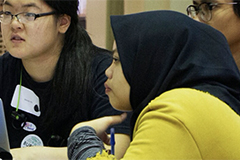 |
Analysis + OpinionApril 15, 2020Insights from the After iGEM biosecurity policy conferenceRonit LangerThe parallels between the findings of the IGEM biosecurity policy conference last November and the actions of scientists and policy makers across the world in responding to the Covid-19 pandemic today are striking: Scope, containment, and communication. |
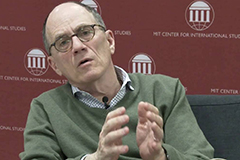 |
Analysis + OpinionApril 8, 2020The inspector general’s badge of honorJoel BrennerThe president’s power to remove Senate confirmed officials is not stated in the constitution. That power is grounded in the president’s constitutional duty to “take care that the laws be faithfully executed.” In this case, ironically, Trump removed Atkinson for having faithfully executed the law, explains Joel Brenner in a recent opinion piece. |
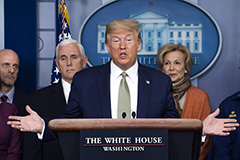 |
Analysis + OpinionApril 3, 2020It’s high time we fought this virus the American wayJames E BakerNew York TimesThe administration has all the authority it needs to produce medical supplies and prepare for a potential vaccine, argues James E Baker in a recent New York Times opinion piece. Judge Baker was a former CIS Robert E Wilhelm fellow. |
 |
Analysis + OpinionMarch 29, 2020Deal-making during the coronavirus pandemicFotini ChristiaIt is unclear what a negotiated settlement could look like between the Afghan government and the Taliban given the latter’s clear desire to head the state. Whether the Taliban can commit to power sharing is a highly doubtful proposition as many expect it to get militarily emboldened as soon as the US withdraws and to become the de facto ruling power. |
 |
Analysis + OpinionMarch 26, 2020Yemen's proxy wars explainedPeter Krause, Tyler B ParkerPolitical Violence at a GlanceFive years of war have accentuated the futility of pure military resolutions to the fighting in Yemen. However, its proxy wars are likely to persist, much for the same reason they have persisted in Syria and Libya; namely, because the potential benefits to intervening states still outweigh the costs that they pay to gain control, maintain the status quo, or simply feed the chaos. |
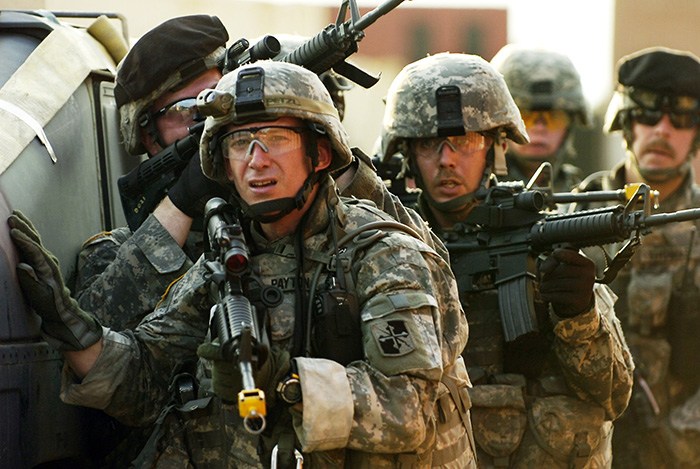 |
Analysis + OpinionMarch 20, 2020How coronavirus will affect the US militaryRachel Tecott, Erik SandWashington PostThe coronavirus pandemic will continue to negatively affect US military readiness, leaving the Pentagon to think carefully about how to mitigate the impact on training and overall troop readiness, says Rachel Tecott and Erik Sand in a recent opinion piece originally published in The Washington Post (online). |
 |
Analysis + OpinionMarch 19, 2020Coronavirus halts street protests, but climate activists have a planShola LawalThe New York TimesThe coronavirus outbreak has prompted climate activists to abandon public demonstrations, one of their most powerful tools for raising public awareness, and shift to online protests. |
 |
Analysis + OpinionMarch 18, 2020We lead three universities. It’s time for drastic action.New York Times“Is all this disruption really necessary? We believe the answer is yes,” MIT President L Rafael Reif and counterparts Lawrence Bacow ’72 of Harvard University and Marc Tessier-Lavigne of Stanford University write in The New York Times, on the “painful steps” needed to address Covid-19. “The time to act is right now.” |
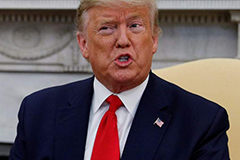 |
Analysis + OpinionMarch 8, 2020How Donald Trump should handle China's growing powerJoshua ShifrinsonThe National InterestUltimately, China is not the threat claimed, and inflators’ prescriptions are a recipe for overstretching and needless risk. It is not too late for the US to soberly address China’s rise. |
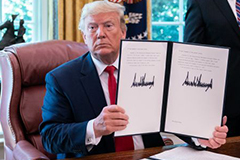 |
Analysis + OpinionMarch 3, 2020Courting warBarry PosenBoston ReviewDespite claims to the contrary, the Trump administration wants regime change in Iran and is risking a full-scale war in order to get it. |
 |
Analysis + OpinionFebruary 26, 2020Tweak ocean ecosystems? Maybe not, study says.Shola LawalThe New York TimesA controversial idea to fight climate change by using iron to manipulate ocean ecosystems probably won’t work, according to a study by researchers at the Massachusetts Institute of Technology. |
 |
Analysis + OpinionFebruary 23, 2020Trump and Modi will meet in India this week; here's what to expectChristopher ClaryThe Washington PostPresident Donald Trump heads to India on Feb 24-25, making stops in New Delhi as well as Ahmedabad, in Indian Prime Minister Narendra Modi's home state of Gujarat. This will be Trump's first visit to India as president. |
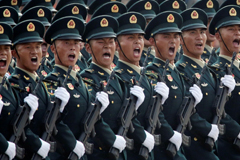 |
Analysis + OpinionFebruary 21, 2020Mike Pompeo criticized China for not respecting its neighbors’ territorial integrity. What’s the story?M Taylor Fravel The Washington PostM Taylor Fravel reflects on how China’s approach to territorial disputes has been quite different from what Pompeo suggests. |
 |
Analysis + OpinionFebruary 7, 2020Iraqi protesters will likely push forward despite violenceMarsin AlshamaryThe World | PRIDespite violence, Iraqi protesters have made political gains, the most significant of which is the recognition by all parties that legitimacy can only come from the people. |
 |
Analysis + OpinionFebruary 3, 2020Fireflies have a mating problem: The lights are always onShola LawalThe New York TimesThese are tough times for fireflies. Like a lot of other insects, they face increasing threats from habitat loss, pesticides and pollution. But they also have a problem that’s unique to luminous bugs: It’s getting harder for them to reproduce because light pollution is outshining their mating signals. |
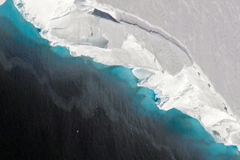 |
Analysis + OpinionJanuary 29, 2020Temperatures at a Florida-size glacier in Antarctica alarm scientistsShola LawalNew York TimesScientists in Antarctica have recorded, for the first time, unusually warm water beneath a glacier the size of Florida that is already melting and contributing to a rise in sea levels. |
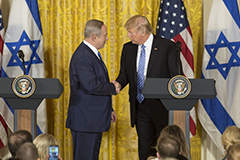 |
Analysis + OpinionJanuary 28, 2020Trump’s peace plan is a paradigm shiftPeter KrausePolitical Violence At A GlanceWhat’s significant about the deal is that it represents a paradigm shift in US policy, at least under Trump, from one model of conflict resolution to another. This shift is evident in other areas of foreign policy, too, including Trump’s pulloute from the Iran nuclear deal... |
 |
Analysis + OpinionJanuary 26, 2020Samuels summarizes "Special Duty" in Ambassador BriefRichard SamuelsAmbassador's BriefSince Japan‘s intelligence community (IC) had never been the subject of serious study, and since Japanese strategists have begun to focus their attention on intelligence reform, Richard Samuels took the opportunity to produce his new book, Special Duty. He summarizes the key findings in a recent Ambassador's Brief. |
 |
Analysis + OpinionJanuary 13, 2020Here’s how to regulate artificial intelligence properlyDavid EdelmanThe Washington PostIf we’re going to govern AI, we need to recognize it for what it is: a tool, with innumerable uses. And that means we need to govern it for the ways people actually use it, and not as a phenomenon in and of itself. |


